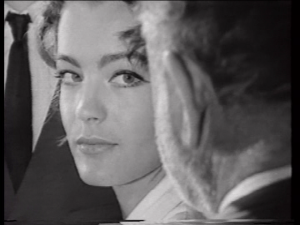
I just finished reading The Trial, by Franz Kafka. When I read it many years ago, it did not make a big impression, but this time I am floored. Kafka has been a victim of his posthumous success in a way. Consider this passage from the blog where I found the film still shown above:
When people use the word ‘Kafkaesque’ they are referring to a kind of powerlessnes in the face of a faceless bureaucracy, with vague suggestions of impending doom- marked by a ‘senseless, disorienting, often menacing complexity’ (Wikiman)-as in a ‘Kafkaesque nightmare’ or as indeed in Kafka’s posthumously published masterpiece ‘The Trial’ Everybody can identify with his chilling tale- with its surreal ending and dark humour. ‘He sounds like my kind of guy!” said Bill Gates on being told his corporate trials (Microsoft’s monopoly) were like the ordeals of Joseph K. Terry Gilliam’s 1985 movie ‘Brazil’ is all Kafka–starting with a Joseph K type arrest.
Well, this is all a bit too easy, although it is clear that there is a connection. [I guess this writer has not read The Trial: there was no mistake in his case, as there was in “Brazil,” and there was no violence. Everything was in order…] Personally, I like the way R. Crumb, in his biography/adaptation of Kafka lampoons the literati as they throw around the term “Kafkaesque” in their cocktail chatter.

What struck me about the novel was the metaphysical nature of the situation. The religiosity of it. K’s execution is like Abraham’s sacrifice of Issac, without the saving intervention of God! And we know that Franz had issues with his father, not to mention THE father.
As George Steiner points out in his introduction to the Everyman edition, what is the sense in taking The Trial to be a premonition of the Nazi death-bureaucracy, Stalin’s NKVD, or other state organs. The people in The Trial are too ordinary, and they act that way. They don’t beat people. They don’t torture. They all try to do their job. And most importantly, K is totally complicit. Why doesn’t he flee – he never even tries to determine the nature of his charge. He ACCEPTS the system totally. No, this is a religious parable we are being treated to, one in which the “hero” is irredeemably lost from the start. Not by accident does the climactic episode with the story of the door to The Law happen in a cathedral, related by a priest, and followed by a rabbinical discourse on the varieties of possible interpretations. The Old Law meets the New Law, and it ain’t pretty.
The other element of the story that surprised me was the contant sexual element that runs through it. K moves from one attentuated erotic encounter to another, always unfulfilled of course.
 And since I brought it up, I might as well rant on about it – this movie! I love Monty Python, and I think Gilliam’s animations are funny. I think 1984, Brave New World, and Zamayatin’s We are literary masterpieces! But I thought this film was trash. The look of it was pretty cool, but that’s about how far it went. The praise that is heeped upon it as a “cult-classic” ignores the fact that is waaaaaay too long; utterly hackneyed in its themes and plot; and positively boring at times. Cult-classic indeed. I guess that’s the tip-off.
And since I brought it up, I might as well rant on about it – this movie! I love Monty Python, and I think Gilliam’s animations are funny. I think 1984, Brave New World, and Zamayatin’s We are literary masterpieces! But I thought this film was trash. The look of it was pretty cool, but that’s about how far it went. The praise that is heeped upon it as a “cult-classic” ignores the fact that is waaaaaay too long; utterly hackneyed in its themes and plot; and positively boring at times. Cult-classic indeed. I guess that’s the tip-off.







 Posted by Lichanos
Posted by Lichanos 


